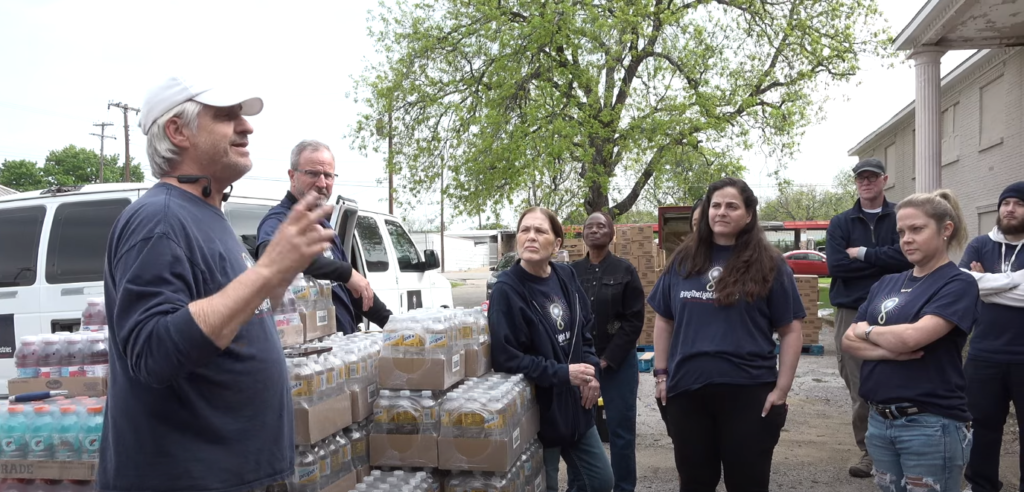Homeless outreach is an active expression of our faith, demonstrating a profound understanding that service to the least among us is service to God Himself. This outreach isn’t merely about providing temporary shelters or meals; it’s a mission to bridge the vast gap between the homeless and the essential resources needed for a dignified life. Deep-seated compassion is at the core of every faith community’s involvement in this endeavor—a resolve to see Christ in every person in need and act upon that recognition. By stepping out in faith to serve, communities live out their religious convictions and create pathways for the homeless to reintegrate into society with respect and dignity. Thus, faith-based homeless outreach stands as a vital bridge built on the unshakeable pillars of compassion and service, aiming to transform both the lives of the homeless and the hearts of those who serve.
Understanding Homelessness Through a Faith Lens
In the realm of faith, homelessness is not just seen as a lack of physical shelter but as a deeper indication of societal disconnect and spiritual need. Various faith traditions across the globe perceive the plight of the homeless through a compassionate lens, urging followers to offer support and kindness to those less fortunate. The teachings at the heart of many religions emphasize the importance of caring for the needy, with the understanding that by doing so, we serve a higher purpose and reflect the love and compassion that is central to our beliefs.
At the core of this compassionate response is stewardship, a principle that calls upon us to use our resources—time, talent, and treasure—to aid those in desperate need. It’s about recognizing that everything we have is a gift, and we are merely stewards of these gifts, tasked with sharing them generously. This understanding propels faith communities into action, encouraging them to look beyond their walls and extend a hand of friendship and assistance to the homeless.
Through this lens, homelessness is not merely a social issue to be solved but a call to action—a reminder that we are all interconnected and responsible for one another. It challenges faith communities to embody the values of compassion and stewardship, ensuring that their actions align with the teachings that call for love and support for all, especially the most vulnerable in society.
The Goals of Homeless Outreach from a Faith-Based Perspective
The essence of faith-driven homeless outreach has multiple avenues. It aims not only to meet the immediate physical needs of individuals but also to nourish their spirits and restore their sense of dignity and self-worth. This holistic approach stems from the understanding that every person is made in the image of the Divine and, as such, possesses inherent dignity that must be respected and honored.

Central to this mission is providing immediate assistance such as shelter, food, and clothing—necessities that offer relief in times of desperate need. Yet, the outreach goes beyond this, aiming for long-term support that addresses the root causes of homelessness. This includes offering job assistance to foster independence, counseling to heal emotional wounds, and facilitating access to education and skill development programs. Such efforts aim to alleviate the conditions of homelessness and empower individuals to rebuild their lives.
Moreover, the faith-based approach strongly emphasizes spiritual guidance. This could manifest in the form of prayer groups, spiritual counseling, and worship services designed to offer hope and a reminder of the love that surrounds each individual, even in their darkest hours. It reinforces the idea that while they may have lost their way, they are never lost from the grace and compassion of their faith community.
Integral to achieving these goals is fostering a sense of community and belonging. Outreach initiatives actively work to integrate those they help into a supportive network, providing a family-like atmosphere that combats the isolation so commonly felt among the homeless population. This sense of belonging is crucial, offering a safety net and a community that believes in their potential and supports their journey towards a better future.
By intertwining practical aid with spiritual care, faith-based homeless outreach strives to restore dignity, empower individuals, and cultivate a community of support and belonging. This reflects the fundamental Christian belief in the value and potential of every life.
Strategies and Practices in Faith-Based Homeless Outreach
In addressing homelessness, faith-based organizations employ various strategies and practices that reflect their commitment to serving the whole person. A cornerstone of this approach is deploying mobile outreach services designed to meet people where they are. These mobile units often provide food and clothing and essential services like medical care and legal assistance, making support accessible for those who might not seek help otherwise.
Shelter provision is another critical component, offering a safe haven for those without a place to call home. Beyond just a roof over their heads, these shelters often incorporate programs aimed at emotional healing and spiritual growth, recognizing the importance of addressing spiritual needs alongside physical ones. For instance, they might offer counseling services that blend psychological support with spiritual guidance, helping individuals to find hope and strength in their faith.
Collaboration plays a pivotal role in the effectiveness of these outreach efforts. By partnering with local agencies, businesses, and other non-profits, faith-based organizations can extend their reach and impact. These partnerships enable the sharing of resources and expertise, creating a network of support for those in need. For example, a church might collaborate with a local food bank to distribute meals or join forces with a medical clinic to offer health screenings at their shelter.

Tailored approaches are essential to meet the diverse needs of the homeless population. Faith-based groups often assess individual needs to provide targeted support, whether it’s help with addiction recovery, finding employment, or reconnecting with family. This personalized attention ensures that each person receives the specific help they require, reflecting the compassion and respect that are at the core of faith-based outreach.
By combining mobile services, shelter provisions, collaborative efforts, and tailored support, faith-based organizations are able to offer comprehensive assistance that not only addresses the immediate needs of the homeless but also fosters long-term healing and empowerment. Through these strategic practices, they bring to life their mission of serving with compassion and nurturing hope among the most vulnerable.
A United Path Forward in Outreach
Faith-based organizations stand as beacons of hope in the fight against homelessness, driven by a profound commitment to compassion, service, and communal care. Our holistic approach not only addresses the immediate needs of those without shelter but also seeks to heal and uplift the spirit, embodying the essence of faith in action. The involvement of faith communities amplifies the impact of these efforts, creating a powerful force for positive change. As we look toward the future, the continued support and engagement of individuals and communities inspired by compassionate faith principles will be crucial. Together, we can contribute to this noble cause, each action moving us closer to a world where dignity and shelter are accessible to all. Let us continue this journey of faith and hope, lighting the way forward, united in our mission to serve and transform lives.


